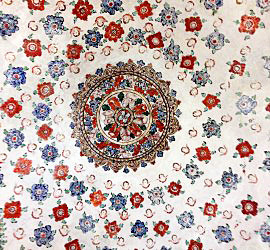The Project
Ticha is an online, digital explorer for a corpus of Colonial Zapotec texts. (The name ticha comes from the Colonial Valley Zapotec word for 'word', which can also mean 'language' and 'text'.) Zapotec languages are indigenous to Mexico. There is a large corpus of alphabetic texts written in Zapotec languages, the earliest dated to 1565 (Oudijk 2008:230). Reading and interpreting these colonial documents can be extremely difficult because of the challenges of early Zapotec orthography, vocabulary, grammar, and printing conventions, yet the documents contain rich linguistic, historical, and anthropological information.
Ticha allows users to access and explore many interlinked layers of these texts, including images of the original documents, transcriptions, translations into English and modern Spanish, linguistic analysis (including morphological interlinearization), and commentary. Ticha is innovative in bringing together data analzed in FLEx (Fieldworks Language Explorer) a system for lexical and grammatical analysis, with current TEI standards (Text Encoding Initiative) for paleographic and translational representations of texts. Ticha seeks to make this corpus of Colonial Zapotec texts accessible to scholars in diverse fields (including linguistics, anthropology, and history), Zapotec community members, and the general public.
Videos
Professor Brook Lillehaugen on the Ticha Project
Carolyn Anderson on the Ticha Project
Janet Chávez Santiagoon the Educational Value of Ticha
May Plumb on the Ticha Project
Michel R. Oudijk on the Ticha Project
George Aaron Broadwell on the Ticha Project
Presentations
CPGC 2020, Speaking, Writing, and Resisting: Celebrating Zapotec Language Activism
LASA 2021, Recovering Words, Reclaiming Knowledge, and Building Community: Ticha Conversatorios
2020, The Ticha Project: Digital Humanities and Infrastructural Interventions
ICLDC 2021, Caseidyneën Saën: The collaborative creation of open educational materials… - Broadwell et al.
